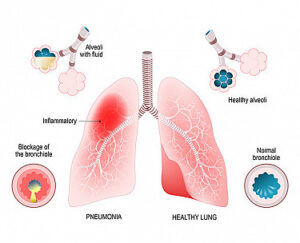- Home
- About Us
- Doctors
- Specialties
- Bariatric Surgery
- Bone Marrow Transplant
- Cancer
- Cardiology
- Cardiovascular And Thoracic Surgery
- Critical Care Medicine
- Dental Surgery
- Dermatology & Cosmetology
- Diabetic Foot Care
- Ear, Nose & Throat
- Endocrinology
- Fetal Medicines
- Gastroenterology
- General Medicine
- General Surgery
- HPB & Gastrointestinal Surgery
- Interventional Radiology
- IVF
- Kidney Transplant
- Laparoscopic Surgery
- Liver Transplant
- Medical And Hemato Oncology
- Neurology
- Neuro & Spine Surgery
- Nephrology And Dialysis
- Nuclear Medicine
- Orthopedic
- Ophthalmology
- Obstetrics And Gynecology
- Pathology Laboratory
- Pediatric
- Peripheral Vascular And Endovascular Surgery
- Physiotherapy and Rehabilitation
- Plastic Reconstruction
- Plastic & Cosmetic Surgery
- Pulmonary Medicine
- Radiation Oncology
- Radiology
- Robotic Surgery
- Surgical Oncology
- Urology
- Facilities
- Patient Area
- Testimonials
- Media
- Contact Us
Pneumonia
Pneumonia Wellness: Navigating, Advocating, Thriving
Welcome to Universal Hospital, where your health is our priority. Our dedicated team of healthcare professionals is committed to providing comprehensive and compassionate care, especially when it comes to the treatment of pneumonia.
Understanding Pneumonia
Pneumonia is a common respiratory infection characterized by inflammation of the air sacs in the lungs. This condition can be caused by various pathogens, including bacteria, viruses, and fungi. Pneumonia ranges from mild to severe and can affect people of all ages, with certain populations, such as the elderly and individuals with weakened immune systems, being more susceptible to severe complications.


Symptoms
The symptoms of pneumonia can vary but often include:
- Cough: Producing phlegm that may be green or yellow.
- Fever: Elevated body temperature.
- Shortness of Breath: Difficulty breathing, especially with exertion.
- Chest Pain: Sharp or stabbing pain, worsened by coughing or deep breaths.
Causes
The most common causes of pneumonia include:
- Bacteria: Streptococcus pneumoniae, Haemophilus influenzae, and Mycoplasma pneumoniae.
- Viruses: Influenza, respiratory syncytial virus (RSV), and adenovirus.
- Fungi: Pneumocystis jirovecii, particularly in individuals with weakened immune systems.
Diagnosis
Diagnosing pneumonia involves a combination of medical history, physical examination, and diagnostic tests, including:
- Chest X-ray: To visualize the presence of infection in the lungs.
- Blood Tests: Checking for signs of infection and determining the causative agent.
- Sputum Culture: Identifying the specific pathogen causing the infection.
Treatment
Treatment for pneumonia depends on the underlying cause:
- Bacterial Pneumonia: Antibiotics are prescribed based on the specific bacteria identified.
- Viral Pneumonia: Antiviral medications may be used for certain viral infections.
- Fungal Pneumonia: Antifungal medications are prescribed for fungal infections.
In addition to medications, supportive care such as oxygen therapy and fever-reducing medications may be recommended.
Prevention
Preventing pneumonia involves:
- Vaccination: Getting vaccinated against common bacterial and viral causes, including the flu and pneumococcal vaccines.
- Good Hygiene Practices: Washing hands regularly and avoiding close contact with sick individuals.
- Healthy Lifestyle: Maintaining a strong immune system through a balanced diet, regular exercise, and adequate sleep.
Living with Pneumonia
Living with pneumonia involves:
- Medication Adherence: Taking prescribed medications as directed.
- Rest and Hydration: Allowing the body to recover with sufficient rest and fluid intake.
- Follow-up Care: Regular check-ups to monitor recovery progress.


